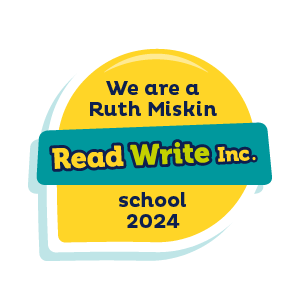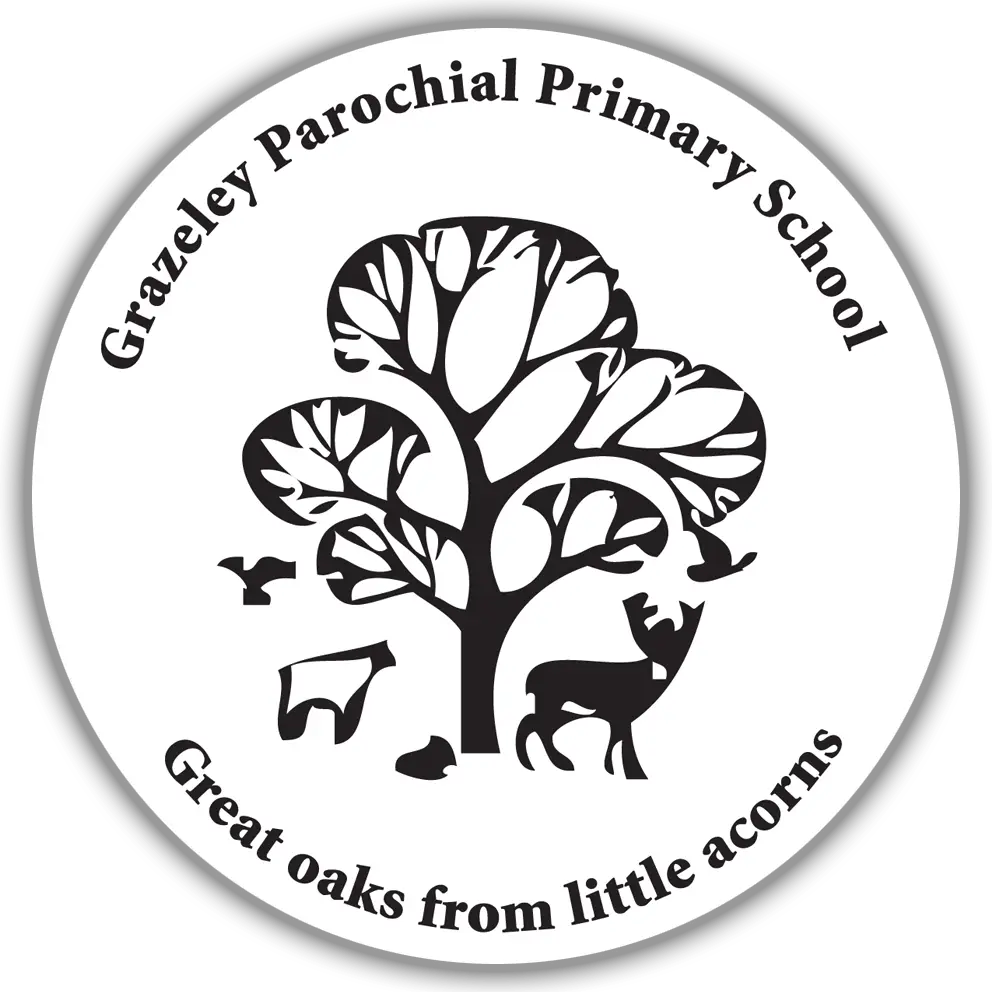- 0118 9883340
- admin@grazeley.wokingham.sch.uk
English
At Grazeley Primary School, we believe that a secure basis in English skills is crucial to a high-quality education and will give our children the tools they need to participate fully as members of society.
Phonics
Intent
 At Grazeley School we use the Read, Write Inc (RWI) programme to get children off to a confident start with their literacy and language. RWI is a teaching method based on phonics (the units of sound within words) and we teach children to recognise and apply the phonics in both their reading and spelling.
At Grazeley School we use the Read, Write Inc (RWI) programme to get children off to a confident start with their literacy and language. RWI is a teaching method based on phonics (the units of sound within words) and we teach children to recognise and apply the phonics in both their reading and spelling.
Evidence suggests that fidelity to a well-structured and systematic phonics scheme is the best, and fastest, way of teaching children to decode. Read, Write Inc also supports children’s ability to read high frequency, common exception words as well as teaching the skills required for effective comprehension of a text including vocabulary knowledge, reading fluency and inference and deduction skills. The ‘build a sentence’ part of a lesson also supports children’s spelling, punctuation and grammar skills.
Through careful and well-sequenced phonic teaching, right from the beginning of their primary education, children will become confident, enthusiastic readers. They know reading unlocks the curriculum and further learning, but they also develop a love of reading for pleasure, diving into the adventures and unique worlds created in books.
Implementation
All phonics teachers are trained in delivering RWI. They have a strong knowledge of the program and how to deliver it, which is cultivated by regular, continued professional development opportunities. Children in EYFS, KS1 and KS2, where needed, are taught in groups by phonics teachers in a ‘stage, not age’ approach, ensuring all children are accessing learning pitched at the correct level for them to make the best possible progress. Children begin phonics from the very beginning of their school journey, engaging in whole class speed sound lessons in EYFS, and then are assessed and moved into the most appropriate group when they are ready.
Every phonics lesson contains a speed sound session where children learn a sound and then use it to read and write words, as well as a storybook reading session, where children read and explore books which contain sounds we know children can access. Children read these books multiple times through the week ensuring they are confident and successful. These are then sent home along with a linked text to read and consolidate. Parents are encouraged to hear children read regularly at home and their ‘Reading Record’ allows for clear communication about children’s reading between home and school.
Every child who is accessing daily RWI is assessed every half term. They are shown speed sounds, checked on their oral blending skills, decodable ‘green words’ and ‘nonsense words’ and are also assessed on their ability to ‘speedy read’. When ready, children are then also assessed upon their ‘word per minute’ reading speed. Children who are near the beginning of the scheme (learning to blend) and those noted to be making accelerated progress, will be assessed sooner than this so their progress is not stalled. This robust assessment process ensures children are making at least expected progress through the scheme. Knowledge of individual children, their reading journey and their specific needs are also considered when deciding which group would be most appropriate for them.
To ensure phonics teachers are teaching to the exact needs of the children in their group, a data gap analysis is made and shared along with any other relevant notes and assessment points. Through this careful analysis, ‘spotlight children’ are identified who phonics teachers will monitor closely and focus teaching towards, to accelerate their progress. The ‘What to Teach When’ document is also used to ensure teaching is tailored to their needs.
Through careful tracking, children are also identified who would benefit from ‘Fast Track Tutoring’ a RWI program which is implemented to help ensure children make rapid progress. This is undertaken by a member of support staff each afternoon either 1:1 or in very small groups. These opportunities for over learning and consolidation are invaluable in helping to secure children’s sound recognition and reading skills. Online video resources, as well as pinny time sessions, are also used both in class and sent home, to support children further with sound retention and speedy reading.
Impact
Once children have secured their phonics knowledge and are reading with fluency, pace and expression, they will graduate from the RWI phonics scheme (usually during the first term of Year 2) and have daily reading lessons using Master Reader. Teachers use RWI grey books at first, to bridge seamlessly, the gap from phonics to the Master Reader scheme.
Our children grow into confident, competent readers able to read texts fluently and share their interest in books with those around them, talking about characters, settings and comprehending plotlines, beginning their own life-long love of reading.
Phonics information and support for parents:
View the powerpoint shared at the Phonics Workshop for parents in the Autumn Term, below.
Watch Sylvie (video right) show how to pronounce the sounds purely to help with blending:
Find a copy of the Read Write Inc sound mats (below) here to help with the different Set 1, 2 and 3 sounds children will learn.
If you have any further questions regarding phonics at Grazeley School, please do contact Miss Hannington (phonics leader) or your child’s class teacher.
